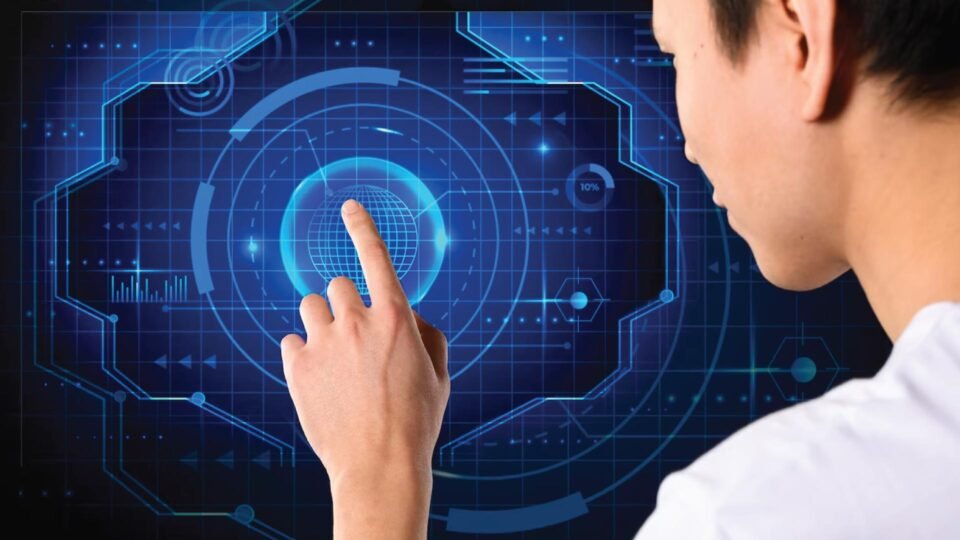AI meets biomarkers—how the C-suite is transforming healthcare from reactive to predictive.
AI and multimodal sensor smart devices facilitate the monitoring of personal health. Technology and biomarkers can be used to prevent and diagnose disease.Utilize AI and multimodal sensors in smart devices to facilitate personal health monitoring, to make healthcare accessible and affordable. The healthcare sector’s revolution towards a preventive and detection model, facilitated by technology and digital biomarkers, proves the potential for utilising these technologies.
Table of Contents:
1. The C-level’s Perspective: Digital Transformation in the Life Sciences Industry
2. Revolutionized Primary Care with Innovative Technologies
3. Advancing Healthcare: AI-Driven Biomarker Solutions
4. Biomarkers: Driving Insurance Decision-making & Sustainability
5. AI Biomarker Training: Key Considerations & Pain Points
Closing Thoughts
1. The C-level’s Perspective: Digital Transformation in the Life Sciences Industry
Healthcare workers and C-level leaders in the life sciences sector have realized the necessity of transforming their strategy for technology investment. They recognize the substantial capabilities provided by cloud computing, automation, AI, and blockchain, but they no longer consider technology to be an add-on. Rather, CIOs and CTOs now take strategic responsibilities in leveraging the most out of these technologies.
In order to entirely leverage new technologies, companies need to bring in new talent. Skills in AI, programming, cybersecurity, and IT management are considered essential in various sectors, including the healthcare industry. In addition, healthcare practitioners and C-level professionals in this industry are also realizing the value of humanistic competencies like curiosity, comprehension, empathy, and intuition. They recognize that balancing hard and soft skills is the key to successfully surfacing in the changing healthcare technology landscape.
The new model of healthcare, based on a patient-centric strategy, can democratize and expedite the development of pharmaceutical drugs. With technology readiness and a paradigm shift towards outcome-based medicine, the sector is set for mass innovation and operational excellence.
2. Revolutionized Primary Care with Innovative Technologies
Because of advanced technologies like AI and AI, primary care has distributed services such as lab work and screening for diseases, allowing patients to get these services comfortably at home. Many healthcare executives now use multimodal sensors that come with smart devices to monitor important signs of diseases and bring digital biomarkers into personal health monitoring.
The difference that stands out for healthcare executives is how they collect health-related data using mobile devices. This path gives us a chance to improve regular clinic visits, letting us see the entire picture of a patient’s health status. Global healthcare leaders are utilizing digital biomarker data collected via smartphones to gain insights into daily habits that can impact someone’s health and risk of disease. Still, a number of current platforms struggle to achieve privacy, improved processes, stability, and accurate research data because of serious issues such as tough regulatory requirements, ethical considerations, and rules about privacy.
3. Advancing Healthcare: AI-Driven Biomarker Solutions
Much of the data needed for biomarker development has appeared faster today due to the rise in remote monitoring tools and wearables caused by the epidemic. Camera-based retinal scans can find indicators of dementia and Alzheimer’s disease. Innovation in this area has improved because of the FDA’s simplified breakthrough designation.
Owing to how AI and machine learning solutions have advanced, entrepreneurs are now getting involved with different healthcare cases and bringing forward innovative improvements in the healthcare area.
4. Biomarkers: Driving Insurance Decision-making & Sustainability
Insurance companies pay great attention to biomarkers because they support achievements in long-term well-being. They make it easier for pharmaceutical companies to invest strategically by helping with drug development, the study of patients in trials, and the proper grouping of patients. When biomarkers and AI are used together, it becomes possible to find and deal with problems early on. We should have guidelines that use biomarkers to spot those who are prone to emergencies that will require seeing a doctor in the ER.
Biomarkers help to manage your health in the long run by monitoring several health signs, such as blood pressure and genes. These solutions are helpful for diagnosis, inventing medicines, and spotting risks, helping the business side of healthcare with new methods and saving valuable resources.
To train AI biomarkers well, you should remember some important points to achieve accurate and fair models.
5. AI Biomarker Training: Key Considerations & Pain Points
There are some important things to keep in mind as you go through the process:
- Never select your data in a way that helps your model and be sure to follow the rules and laws when building your model. Gather information from different organizations and several databases.
- Include a variety of groups instead of focusing the study on just one, no matter how large it is.
- Appropriate steps should be taken to guarantee privacy and compliance during the extraction of data from large sets composed of data from several organizations.
- Make sure to notice signs of bias whenever you train data with algorithms. For example, a phone in a pocket is usually tracked more than one in a purse. This points out the need to address bias in the process of collecting data for AI systems.
Closing Thoughts
As time goes on, biomarkers look set to play an important role in guiding senior executives. Since biomarkers supply objective and measurable information, they are important tools for guiding choices at work. They are used to help with risk analysis, individual medical care, and improved ways of treating patients. Applying the benefits of biomarkers, senior-level executives can choose the best strategies and make decisions that help patients, enhance operations, and boost the company’s performance. Using biomarkers is important for being ahead in both innovation and providing outstanding care in the changing healthcare field.
Explore AITechPark for the latest advancements in AI, IOT, Cybersecurity, AITech News, and insightful updates from industry experts!

